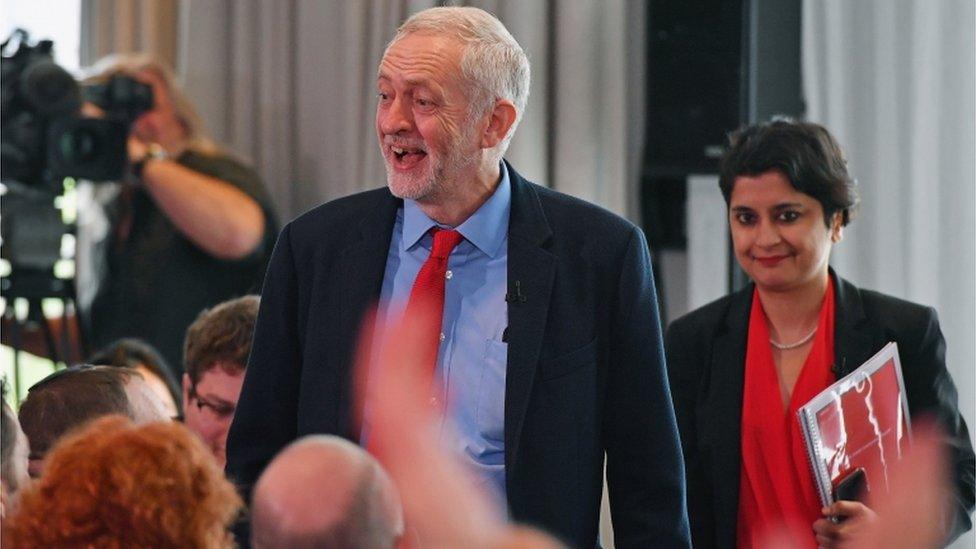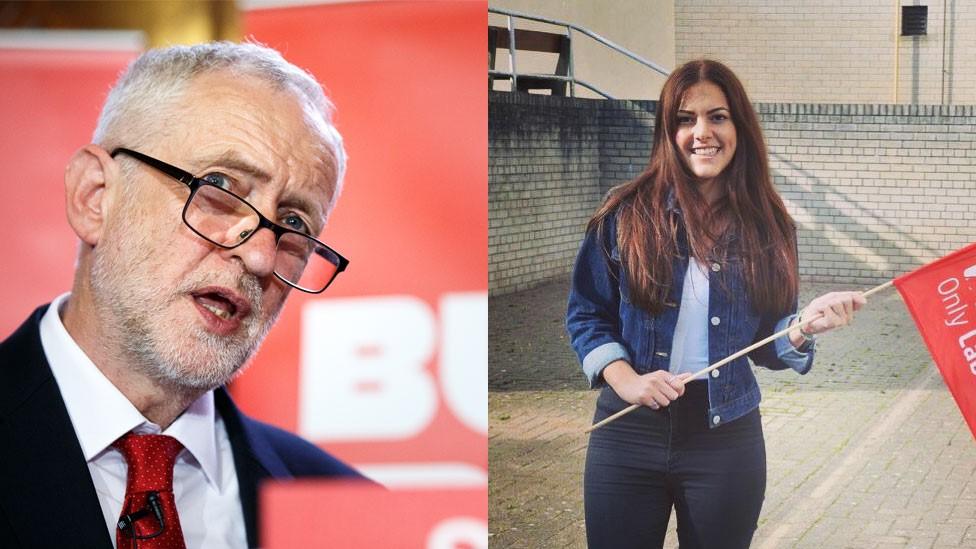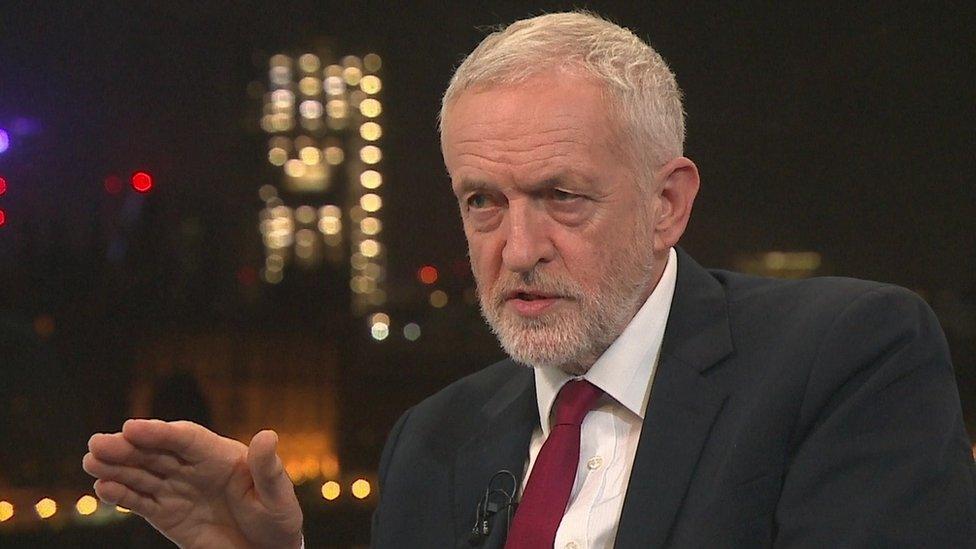MPs join criticism of Labour's anti-Semitism code
- Published

Campaigners and some Labour MPs have criticised the party's new code of conduct on anti-Semitism.
The code states that "anti-Semitism is racism. It is unacceptable in our party and in wider society".
But some critics think it does not sign up in full to the International Holocaust Remembrance Alliance's working definition of anti-Semitism.
Labour insists it does meet the full IHRA definition, which it says was adopted by the party in December 2016.
Labour MPs Chuka Umunna, Liz Kendall and Anna Turley are among those who have been critical.
Mr Umunna tweeted he was "utterly appalled":
Allow X content?
This article contains content provided by X. We ask for your permission before anything is loaded, as they may be using cookies and other technologies. You may want to read X’s cookie policy, external and privacy policy, external before accepting. To view this content choose ‘accept and continue’.
While Ms Turley tweeted:
Allow X content?
This article contains content provided by X. We ask for your permission before anything is loaded, as they may be using cookies and other technologies. You may want to read X’s cookie policy, external and privacy policy, external before accepting. To view this content choose ‘accept and continue’.
The Jewish Leadership Council and the Board of Deputies of British Jews said in a joint statement that it was "impossible to understand" why Labour had not adopted the IHRA definition in full - as the UK Jewish community, governments and local councils had done.
Labour's code, which was approved by a sub-committee of its National Executive Committee, came about after the 2016 Chakrabarti inquiry into anti-Semitism, external.
It does endorse the IHRA's working definition of anti-Semitism and includes behaviours it lists as likely to be regarded as anti-Semitic - but critics think it leaves out four examples:
Accusing Jewish people of being more loyal to Israel than their home country
Claiming that Israel's existence as a state is a racist endeavour
Requiring higher standards of behaviour from Israel than other nations
Comparing contemporary Israeli policies to those of the Nazis
However, Labour insisted the examples which are not in the bulleted section are addressed in the guidelines.
In their joint statement, Jonathan Goldstein of the Jewish Leadership Council and Marie van der Zyl of the Board of Deputies said it was "for Jews to determine themselves what anti-Semitism is".
The Labour Against Anti-Semitism campaign described it as a "toothless document" adding: "The Labour Party already has very little credibility left as the anti-racist body it has always claimed to be.
"The formal adoption of this document would see any remaining credibility lost, perhaps permanently."
A Labour source said Labour Against Anti-Semitism's claims were "ludicrous and entirely false".
And a spokesman for the Labour Party said: "These are the most detailed and comprehensive guidelines on anti-Semitism adopted by any political party in this country.
"They draw on the IHRA examples and other sources to provide practical examples of anti-Semitism which can be applied to complaints cases and used in political education programmes to foster deeper understanding of anti-Semitism among members."
Mr Umunna and Ms Turley are not the only Labour MPs to criticise the code. Bassetlaw MP John Mann tweeted:
Allow X content?
This article contains content provided by X. We ask for your permission before anything is loaded, as they may be using cookies and other technologies. You may want to read X’s cookie policy, external and privacy policy, external before accepting. To view this content choose ‘accept and continue’.
While Leicester West MP Liz Kendall said on Twitter:
Allow X content?
This article contains content provided by X. We ask for your permission before anything is loaded, as they may be using cookies and other technologies. You may want to read X’s cookie policy, external and privacy policy, external before accepting. To view this content choose ‘accept and continue’.
The 2016 Chakrabarti report found Labour was not overrun by anti-Semitism but noted an "occasionally toxic atmosphere".
Leader Jeremy Corbyn said in March that he recognised that anti-Semitism had "surfaced" in the party and said he was "sincerely sorry for the pain which has been caused" and pledged to "redouble my efforts" to tackle it, after Jewish groups accused him of not doing enough.
- Published26 March 2018

- Published18 June 2018

- Published21 May 2018

- Published27 November 2019
